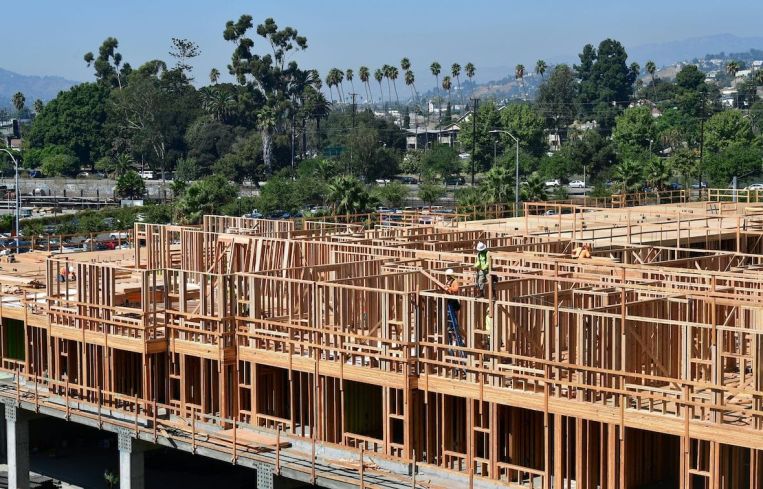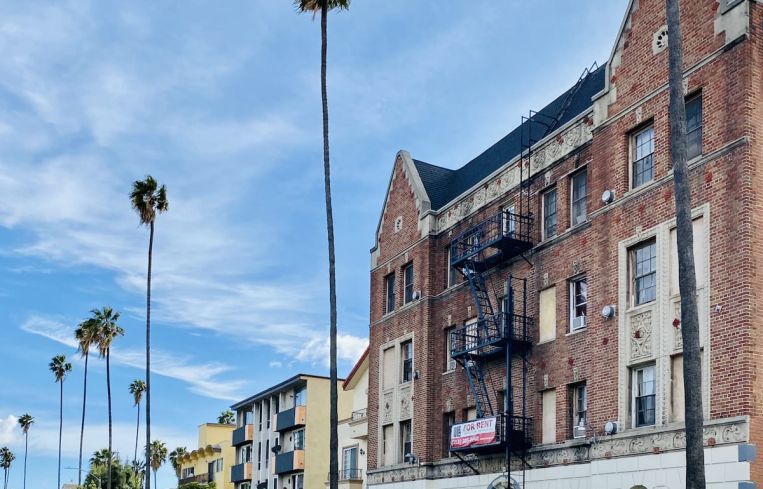Landlords File Injunction to Halt LA’s Eviction Ban, Rent Freeze [Updated]
Apartment Association of Greater Los Angeles also filed a lawsuit against the city in June
By Greg Cornfield September 22, 2020 1:10 pm
reprints

The largest landlord group in Southern California has filed a preliminary injunction to halt Los Angeles’ evictions ban and rent freeze, six months into the economic shutdowns due to coronavirus.
The Apartment Association of Greater L.A. announced the motion against the city today. In June, the group filed a lawsuit against L.A. in federal court challenging the eviction moratorium, restrictions on late fees, and the freeze to annual rent hikes. Those ordinances have caused “widespread and catastrophic financial damage to landlords and lessors,” the group argued.
Rob Wilcox, spokesperson for City Attorney Mike Feuer’s office, told Commercial Observer that they will “vigorously fight” the move for a preliminary injunction.
The city approved a moratorium on evictions at the start of the economic shutdowns to prohibit landlords from kicking tenants out for nonpayment of rent if they suffered hardships due to the pandemic. L.A. renters who can’t pay because of the outbreak or shelter-in-place orders have 12 months after the end of California’s state of emergency ends to pay back their rent. L.A. also froze rent increases on about 624,000 apartment units that are covered by the city’s Rent Stabilization Ordinance.
AAGLA is represented by Douglas Dennington of Rutan & Tucker, who said the rent freeze and ban on evictions are unconstitutional and an “abuse of power” that forces landlords to absorb the economic losses that the pandemic has caused.
AAGLA’s board president, Earle Vaughan, said the city’s eviction ban “goes way overboard” in providing benefits to renters at the expense of all landlords, particularly the small mom-and-pop landlords who make up most of the housing providers in L.A.
“Many of the renters that have benefited under these ordinances have not been impacted during the pandemic and yet still choose not to pay rent,” Vaughan said in a statement. “As a result, the city has exposed itself to significant liability risk (…) in particular, damages stemming from the lack of an ‘end date’ on the eviction ban and prohibition on rent increases, which now seven months following their establishment is still a date unknown.”
Just in L.A. County, about 138,250 households did not pay any rent at least once between May and July, according to a joint report recently released by UCLA and USC, and almost 40,000 households are at least three full months behind on rent. Of the renters in L.A. struggling to pay rent, about 98,000 have been threatened with an eviction before August.
But AAGLA’s executive director, Daniel Yukelson, said that after seven months of not collecting rent, housing providers and landlords are suffering severe financial consequences. He said landlords are in deep financial trouble, and many have been forced to liquidate emergency savings or are at risk of foreclosure. Yukelson said they need relief today, and they cannot wait for court proceedings to play out with their June lawsuit, which could take months or years.
“No government or any other relief has been offered to help these struggling ‘moms and pops,’ who have been forced to continue to provide housing and meet ongoing financial obligations, absent of any sort of compensation or relief,” he said in an email to CO.
Yukelson said the city has “completely overstepped its bounds” by forcing housing providers to bear the financial burden of housing the city’s renters without compensation. Earlier this year, he told CO that property owners should not be treated like public ATMs.
“At what point,” he said, “does the city of L.A. provide any level of assistance to mom-and-pop property owners in danger of permanently losing their livelihoods?”
In its lawsuit, the group argues that the ordinances “effectively amount to an impermissible ‘partial’ or ‘complete’ taking, in violation of the Takings Clause of the Fifth Amendment of the U.S. Constitution,” and that prohibiting the ability to collect rent constitutes a regulatory taking of private property without providing compensation.
Late last month, the state of California approved a stopgap measure to protect renters throughout the state from losing their apartments due to nonpayment of rent. Under the measure, tenants who missed rent payments between March 1 and Aug. 31 due to coronavirus cannot ever be evicted for those missed rent payments. The rent owed will be converted to civil debt, and landlords will be able recover it in small claims court. Between Sept. 1 and Jan. 31, tenants with coronavirus-related financial hardships will need to pay at least 25 percent of their rent owed in order to maintain protections from eviction.
Update: This story has been updated since publication to include additional comments from the city attorney’s office.
Correction: This story has been corrected with the accurate length of the economic shutdowns.



